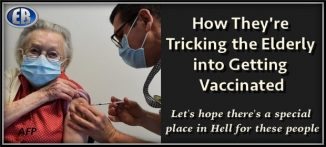
ER Editor: To be very clear, the Jean Jaurès Foundation in France, which conducted this research, is a think-tank associated with the Socialist party. France Soir, which issued this report, does not seem to have any kind of left-leaning partisanship.
We’ve inserted our own comments in the story below for perspective.
The socio-economic class best represented by the anti-maskers is somewhat surprising, we have to admit. Hearteningly, there is growing distrust of government, official institutions and Macron as president. The JJF does, predictably, fall into the trap of calling people who inform themselves broadly ‘conspiracy theorists’, which we explain below.
For additional reading, we also recommend – with a strong Bias Warning – this report titled French ‘anti-maskers’: Older, right-wing and conspiratorial.
We can only wonder if governments (the French one anyway) would not be a little disturbed by this profiling of anti-maskers. After all, it’s the higher socioeconomic classes, typically the products of the ideologically-driven universities, who are supposed to be society’s compliant managers and more milked taxpayers. We’re thinking of Chomsky’s analysis in this regard. To discover that a sizeable section of them are to be found among the anti-maskers, with their distrust of government, media and Big Pharma, must be giving the Davos Crowd pause for thought.
********
Who are the anti-maskers? A portrait by the Jean Jaurès Foundation
FRANCE SOIR
By immersing itself in anti-mask Facebook groups, the Political Foundation wanted to draw up a “typical profile” of the anti-mask activist, with surprising conclusions.
Let’s start from the premise that France is purely and simply cut in two between “pro-masks” and “anti-masks” (why make it complicated?), that the two camps look at each other like dogs, when they don’t even bite each other’s noses off. The Jean Jaurès Foundation has set the scene:
“If 64% of citizens do indeed want the wearing of masks to be compulsory, even in open public places, it is nevertheless the case that an anti-mask response is being organized.
The best represented are the CSP+s*
(ER: *CSP means ‘catégorie socio-professionelle’, referring to a higher socioeconomic class, that of professionals. ‘+’ probably amplifies the meaning.)
Even if they arrive towards the end of the study, the socio-demographic data on anti-maskers are almost the most interesting, since they go against preconceived ideas.
Anti-maskers, therefore, are mostly (63%) women, have an average age of 50 years and belong to the “higher social categories”. Executives and senior professionals represent 36% of anti-masks – and 18% of the general population. 24% are in intermediate occupations, while the figure drops to 7% among blue-collar workers.
From uselessness to enslavement
The study of the Jean Jaurès Foundation highlights four reasons that would justify not wearing the mask, namely its uselessness, its dangerousness (both for oxygenation and for the bacteria it contains), but also doubts about the very existence of the epidemic, and finally the use of the mask as a means of enslaving the population.
If we take the example of “uselessness”, the study (or the respondents?) does not distinguish between closed and open spaces.
For the Foundation, the “breeding ground for protest” is first and foremost a mistrust of institutions and policies. Thus just 6% of anti-maskers declare they have confidence in the presidential institution, and the rate drops to 2% when it comes to Emmanuel Macron.
This mistrust also concerns political parties (2%) and trade unions (10%), while 53% of anti-maskers declare themselves as having confidence in the hospitals.
“It is clearly the most distrustful sectors of the population that are showing their refusal to wear a mask, precisely because they no longer trust what the institutions are saying.”
The Jean Jaurès Foundation nevertheless notes that the level of mistrust is also extremely high in the general population. For example, 34% of French people declare themselves to have confidence in the institution of the president, 13% in the political parties.
“While the exceptional measures that are taken would require a broad approval of the citizens, on the contrary, they arouse mistrust and skepticism”.
Populism, conspiracy, etc.
But back to the anti-maskers. The Foundation devotes a chapter to their rejection of the elites and their “adherence to populist theories”, noting that on the Ackerman Scale their results are on average 12 points higher than the national average.
The scale includes six statements to gauge levels of populism, such as “politicians must follow the will of the people” or “I would rather be represented by an ordinary citizen than a professional politician.” (ER: Aren’t politicians supposed to follow the will of the people? That view might be more apparent among Americans than French, we suspect.)
Excluding anti-masks, let us note all the same that of the entire French population, only one question does not cross the 50% threshold: “in politics, when we talk about compromise, it is that we actually renounce our principles”.
To mistrust and populism, the Jean Jaurès Foundation adds the libertarian dimension, i.e. economic and moral liberalism, to explain the rejection of the mask – and the strong presence of the CSP+. But that’s not all since the anti-maskers present on Facebook groups also adhere, still according to the think tank, to conspiracy theories.
Ninety percent of them think that “the Ministry of Health is in cahoots with the pharmaceutical industry to hide from the general public the reality about the harmfulness of vaccines”. The figures are much more mixed when questions are asked about Lady Di’s death or the Illuminati (ER: The Illuminati were a real group operating at the time of the French Revolution, a fact which older French are aware of in their education system. On top of that, they are also exposed to the ‘conspiracy’ nature of this word).
ER: This compilation article titled What Is Gilead’s Role In The War On Hydroxychloroquine? (And Abbvie Pharmaceuticals) reveals that many of France’s ‘top’ doctors are indeed in the pay of Big Pharma, that some of them have advisory roles with the government in its Scientific Council, and that some of them are behind threats made to other French doctors advocating the use of hydroxychloroquine, not least Prof. Didier Raoult. Is the Ministry of Health in ‘cahoots with the pharmaceutical industry to hide from the general public the reality about the harmfulness of vaccines’? Well, duh. Yet this is labelled CONSPIRACY THEORY.
The TV news? No thanks!
Another chapter of the study sheds an interesting light on the relationship of anti-maskers to information and the media. Only 14% of respondents say they trust the information in newspapers and… 2% in TV news. Of the latter, the general level of confidence does not exceed 29%.
But even if the French people declare that they do not trust television news, 47% of them still trust the small screen as their main source of information.
The trend is reversed among anti-masks for whom information comes first from the Internet, precisely for 78% of them (compared to 28% in the general population). 51% also declare that they trust the information present on social networks, which leads the Jean Jaurès Foundation to say:
“Social networks and in particular Facebook groups function as closed spaces, a kind of cognitive bubble where opposing arguments no longer have a place and no longer have a hold.”
(ER: Which leads us to think that the Jean Jaurès Foundation doesn’t seem to be aware that positions held in FB groups are ‘oppositional’ to begin with, where FB interactants are already well aware of what the standard ‘narrative’ is.)
LINK to Report, «BAS LES MASQUES!» : SOCIOLOGIE DES MILITANTS ANTI-MASQUES (Lower the masks! The sociology of anti-mask militants)
************
Original article

••••
The Liberty Beacon Project is now expanding at a near exponential rate, and for this we are grateful and excited! But we must also be practical. For 7 years we have not asked for any donations, and have built this project with our own funds as we grew. We are now experiencing ever increasing growing pains due to the large number of websites and projects we represent. So we have just installed donation buttons on our websites and ask that you consider this when you visit them. Nothing is too small. We thank you for all your support and your considerations … (TLB)
••••
Comment Policy: As a privately owned web site, we reserve the right to remove comments that contain spam, advertising, vulgarity, threats of violence, racism, or personal/abusive attacks on other users. This also applies to trolling, the use of more than one alias, or just intentional mischief. Enforcement of this policy is at the discretion of this websites administrators. Repeat offenders may be blocked or permanently banned without prior warning.
••••
Disclaimer: TLB websites contain copyrighted material the use of which has not always been specifically authorized by the copyright owner. We are making such material available to our readers under the provisions of “fair use” in an effort to advance a better understanding of political, health, economic and social issues. The material on this site is distributed without profit to those who have expressed a prior interest in receiving it for research and educational purposes. If you wish to use copyrighted material for purposes other than “fair use” you must request permission from the copyright owner.
••••
Disclaimer: The information and opinions shared are for informational purposes only including, but not limited to, text, graphics, images and other material are not intended as medical advice or instruction. Nothing mentioned is intended to be a substitute for professional medical advice, diagnosis or treatment.




